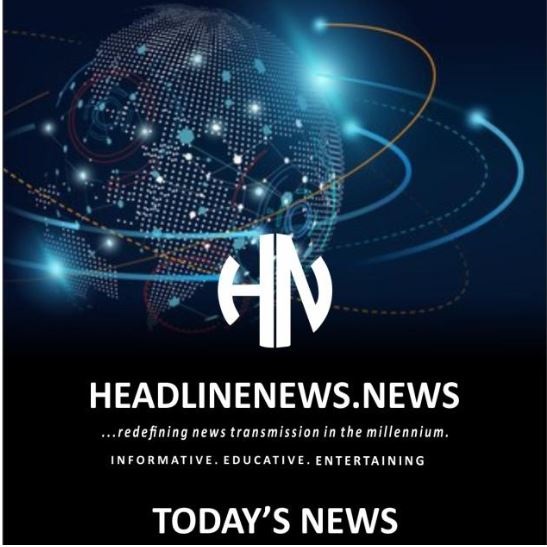Of Banks, Titans, and the Greatest Heist in Nigeria’s Financial History
By a Senior Investigator (Name Withheld)
“Let me begin with some context. I earned an MBA in Banking and Finance in Houston, Texas, before returning to Nigeria to begin my banking career alongside Godwin Emefiele in a merchant bank. Later, I joined a team that established a commercial bank, alongside respected figures such as the late Dr. Pius Okigbo, Chief Chris Ogunbanjo, K.U. Kalu, and Chief Emeka Anyaoku. Eventually, I left formal banking to start my own business.”
” I share this background not to boast, but to clarify that I am deeply embedded in Nigeria’s financial sector. I have watched the rot set in from within.”
“In 2023, I was appointed by the President as one of five special investigators tasked with probing the Central Bank of Nigeria (CBN) and other Government Business Entities. We began work on August 1st, aware of the enormous risks involved. Despite heavy security, we knew only divine protection could secure us in a country where financial crimes of staggering proportions are often shielded from consequence.”
“Due to the classified nature of our work and the oath of secrecy, I am limited in what I can reveal. But I can share this truth: the Nigerian people have been betrayed not only by politicians—but by the very banking elite entrusted with the nation’s financial future.”

The Bankers’ Betrayal: Who Really Sank the Naira?
The heads of Nigeria’s major banks have done more to weaken the country’s economy than many realise. Their operations, while legal on the surface, often exploit systemic loopholes, regulatory silence, and political connections to transfer massive wealth to a few, while impoverishing the many.
Let’s take a case in point: the late Herbert Wigwe and the rise of Access Bank.
How did Access Bank, then a relatively modest player, come to acquire Intercontinental Bank, one of Nigeria’s financial giants?
How did it later swallow Diamond Bank?
Why did the regulatory system turn a blind eye to the ethical, financial, and legal concerns raised at the time?
These questions are not rhetorical. They strike at the heart of the greatest banking heist in Nigeria’s modern financial history.
The Intercontinental Takeover: A Case Study in Systemic Capture
During the 2004–2009 era of forced recapitalizations and mergers (championed by CBN Governors Charles Soludo and Sanusi Lamido Sanusi), Access Bank sought loans from Intercontinental Bank to remain afloat. Executives even took personal loans to bolster their positions.
One politically connected figure from North Central Nigeria is alleged to have borrowed ₦11 billion from Intercontinental to acquire four Ikoyi properties—loans that were later cited as evidence of the bank’s “insolvency.” This, despite audit reports suggesting Intercontinental had no non-performing loans at the time.
Then came the decision: Intercontinental Bank—despite its ₦400+ billion asset base—was declared distressed and sold. And who was the buyer? Access Bank, the very entity seeking ₦16 billion in loans just months earlier. The price? A paltry ₦50 billion.

Consider the scale of the theft: investors who had ₦7 million in Intercontinental shares (₦7/share) saw their investments converted to ₦50,000 worth of Access stock (₦1/share, exchanged at 20:1).
That was not a merger. It was economic euthanasia—an orchestrated transfer of wealth from Nigerians to a favored few.
Regulatory Failure: Aiding and Abetting
During the same period, oversight of the Nigerian Stock Exchange was weak. The then-Director General, Ndi Okereke-Onyuike, was later revealed to have misrepresented her credentials, and the market was flooded with overpriced, underperforming stocks—many backed by reckless bank exposure.
Despite this, Intercontinental—once considered “too big to fail”—was targeted and dismantled. Erastus Akingbola’s legal challenge to the CBN’s actions was drowned by political and financial forces too strong to counter.
Access Holdings: A Snapshot of Profit Amidst Pain
Consider Access Holdings’ Half-Year Report for 2023:
Page 45: “Fair Value and Foreign Exchange Gain” = ₦192 billion
Page 165: “Total Net Foreign Exchange Gain” = ₦244.3 billion
Access Holdings Plc (ACCESS.ng) HY2023 Interim Report (PDF)
These gains were achieved while the Nigerian Naira plummeted, inflation soared, and citizens struggled to afford basic necessities. The banks prospered on the backs of currency manipulation, foreign exchange arbitrage, and systemic gaps in regulation.
Beyond Wigwe: No Sainthood for the Powerful

Herbert Wigwe was a brilliant man. He gave to the church, funded education, and built a world-class university—Wigwe University, now advertised on international networks like CNN. Its tuition is in dollars, beyond the reach of the average Nigerian family.
These acts of charity, while commendable, do not absolve the structure that enabled such immense personal wealth at the expense of national well-being.
We must stop canonizing men because they die. We must start asking how they lived—and whether the systems they built uplifted or oppressed the average Nigerian.

Final Thoughts: A Call for National Reckoning
The problem is not just a few individuals. It is the entire system—one where regulation is performative, oversight is compromised, and public wealth is prey for private empires.
The late Wigwe did not act alone. Neither did Emefiele. But they operated within a system that rewarded cunning, not character. Until we confront the truth—that our banking sector has been weaponized against the people—the future of Nigeria remains hostage to greed.
We all will leave this world one day. But history does not forget. It remembers who built, and who broke.
Let us not be afraid to speak the truth, even of the dead—especially when the living are still suffering the consequences of their actions.

References & Sources:
Access Holdings Plc HY2023 Report – AfricanFinancials.com
CBN Mergers & Acquisitions Policy Review (2005–2009)
Public records and media coverage of Intercontinental–Access Bank merger (2009–2012)
Investigative reporting on the NSE under Ndi Okereke-Onyuike
Dr. Khazaly
The National Patriots.




